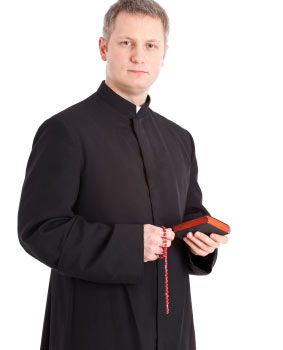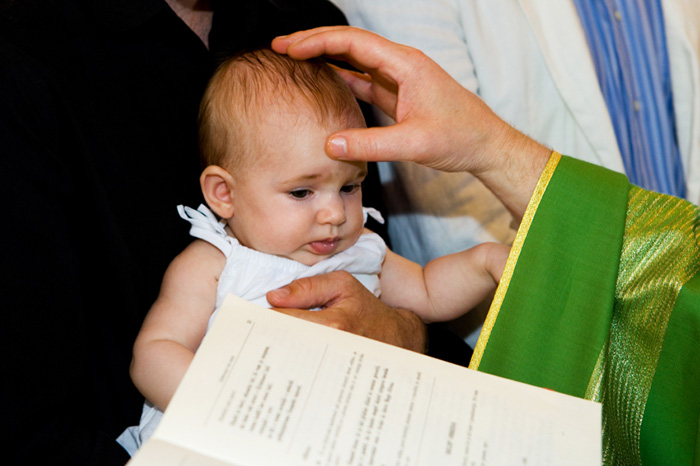What it Means to Be a Minister

The world's many faith traditions use a variety words to refer to their spiritual leaders, such as pastor, rabbi, priest, and imam. However, all of these positions can be described by the blanket title of "minister." It is important for anyone who wants to be a minister to be devoutly spiritual, charismatic, a natural leader, and someone who is capable of providing both religious and life guidance. Anyone can be a minister if they want to, provided that they attempt to get ordained with a church that accepts them; some denominations refuse to allow gays or women to get ordained with them.
A minister, in a legal sense, is a person who has been recognized by their religious community as a member of the clergy. They are empowered to conduct ceremonies and rituals, including ones with legal ramifications, such as performing a wedding.
Ministers also play a spiritual role; to be a minister is to be a person of God, Allah, or some other lone / set of deities. They serve their faith communities by providing spiritual teaching, wisdom and by acting as a conduit between the laypeople around them and whatever god or gods they serve. While the details about what it means to be a minister may vary between different religions, the act of bridging the everyday lives of the minister's community with the divine remains constant.
How to Get Ordained
A person who wants to be a minister must first get ordained. This is a process that varies greatly from one spiritual tradition to another. Most ordination processes require four or more years of expensive schooling. For example, in order to become a minister in a Lutheran church, one has to attend a seminary school for four years and spend more than $30,000 a year in tuition and other expenses in order to earn the Master of Divinity degree necessary to become ordained.
The modern world has provided an alternate route that allows hundreds of people to get ordained every day without forcing them to spend years and tens of thousands of dollars on their religious education. Online churches like the Universal Life Church can help anyone be a minister within a matter of minutes for no to little cost. The ULC Monastery is one of these online churches; you merely need to fill in a form with your name, email address, and mailing address on their website in order to get ordained with them. Online churches like the ULC Monastery are legally-recognized in the vast majority of the United States, meaning that their ordinations and thus ministers generally enjoy the same legal standing as conventional churches.
The Duties and Responsibilities of Ministers

Ministers are called on to perform many duties in the course of their service to their faith communities. Many of these duties occur within a ritual context, such as providing the sacrament of communion, preaching a sermon, or performing a marriage ceremony. In completing these tasks, ministers are also fulfilling their spiritual responsibilities of acting as a conduit between laypeople and the divine, sharing religious truths, and embodying the ideal of a person living in accordance with their religious tradition's teachings.
Ministers are also tasked with taking care of the spiritual and emotional needs of their congregations. This might involve very practical tasks, such as distributing food to those in need. Other examples include visiting the sick and the dying, performing funerals and memorial services, and providing spiritual comfort and advice to those in mourning.
When performing such tasks, ministers have both spiritual and legal responsibilities. Their spiritual responsibilities include nurturing the faith and spiritual connection of their communities, which conveys the compassion and comforting of their deity or deities and presents the hope provided by their religion's teachings. In the legal realm, ministers may also be responsible for referring people to doctors or psychiatrists when appropriate. They may also be responsible for keeping records and other such administrative tasks.
Add Your Comment